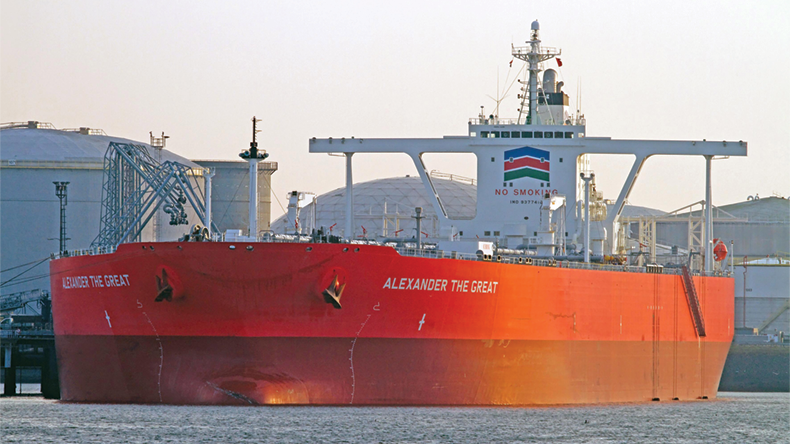Economy and business
Are Greek shipowners and Belgian dealers the best Putin’s allieds?

Russia’s oil and, generally, energy exports are continuing rather quietly at the moment, and if they are being reduced, it is mainly because of voluntary restraint on Moscow’s part and not because of Western policies or sanctions.
The European countries, members of the Union, which, in other words, are in the forefront against Putin and in favor of Ukraine, actually play a significant role in these trades, both in the petrol and natural gas sectors.
Let’s start with oil. As Robin Brooks points out, the volume of shipments by Greek shipowners based on the total volume of oil exported from Russia has remained more or less stable or decreased slightly.

There has been a decrease in oil shipments by Greek tankers, but simply because, in total, the volume of oil exported from Russia has decreased, as can be seen from the two graphs. Interesting is the increase in shipments by tankers from third countries, meaning countries of various flags, demonstrating the activity of the Russian “Shadow Fleet.”
Robin Brroks also blames this on the Greek Mitsotakis government, which is seen as conniving with Russia. Frankly, we disagree: Mitsotakis has no interest in disturbing the big Greek shipowning groups, but that is, if anything, because of domestic political issues, not because of connivance with Putin.
Belgians care about their business
If in oil the role of Greek amateurs is evident, in the Liquefied Natural Gas market the lion’s share of the pro-Russian service is played by a country that is a NATO headquarters, Belgium.
While Belgium’s total LNG imports in February increased by only 4 percent, according to CREA, imports from Russia saw a much more significant increase of 44 percent. At the same time, Belgium’s LNG re-exports increased by a whopping 81 percent, a significant portion of which was shipped to Spain and China, indicating the country’s role in trans-shipment of Russian gas globally.
So Belgium, per se , may not have increased its import of Russian gas, but, on the other hand, its dealers are getting rich on the
“Pecunia non olet.”
The Roman emperor Vespasian also became known to history for his saying, “Pecunia non olet,” meaning money has no smell, meaning it is more important to make profits than to worry about where they come from.
The saying fits Russian gas and oil perfectly: as long as it is possible to make profits from Russian exports, there will always be someone ready to take advantage of them. If anything, the constraint, for some countries, may be the “price cap”: with oil values rising, it is less and less likely to export below the cap set by the G7.






